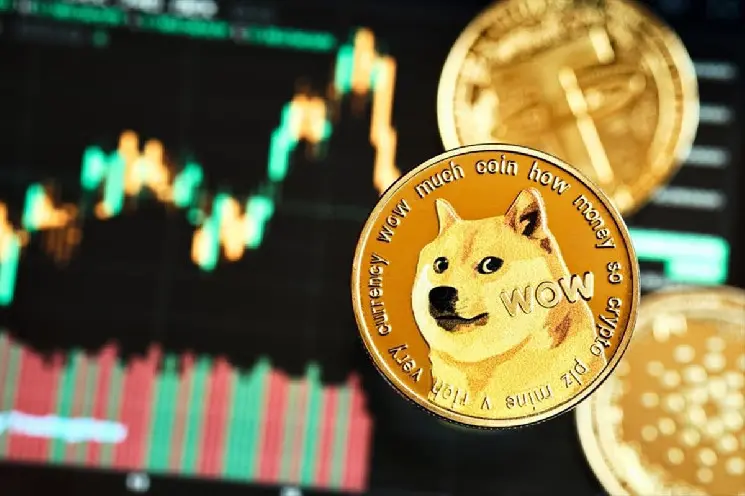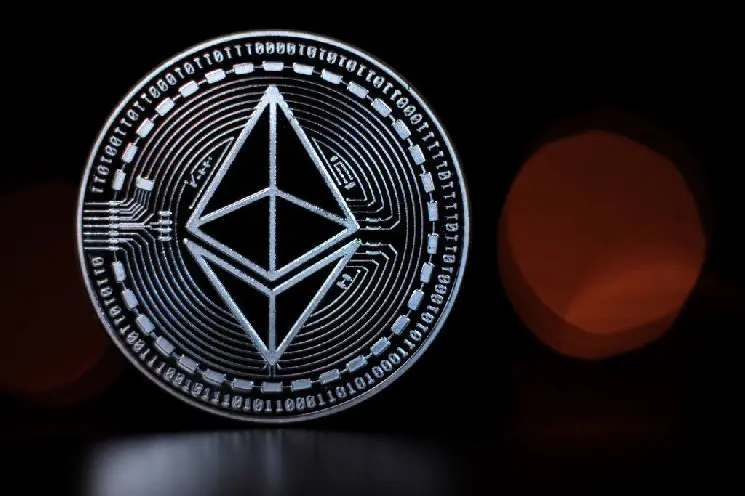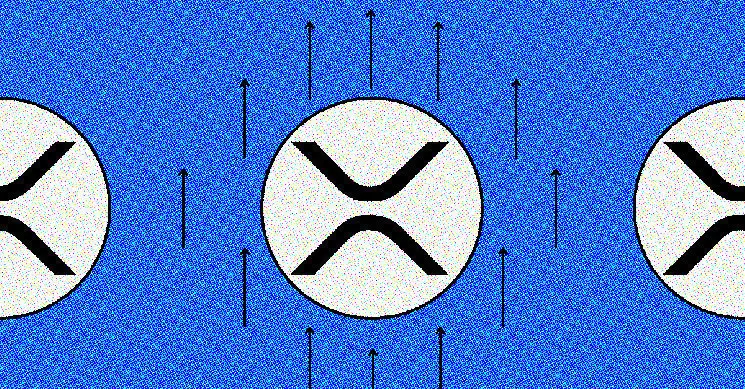MLN Enzyme
$ 20.26 USD
$ 20.26 USD
$ 56.319 million USD
$ 56.319m USD
$ 7.186 million USD
$ 7.186m USD
$ 71.804 million USD
$ 71.804m USD
2.667 million MLN
Enzyme-related information
Issue Time
2017-02-15
Platform pertained to
--
Current coin price
$20.26USD
Market Cap
$56.319mUSD
Volume of Transaction
24h
$7.186mUSD
Circulating supply
2.667mMLN
Volume of Transaction
7d
$71.804mUSD
Change
24h
-1.44%
Number of Markets
106
Github Messages
More
Warehouse
None
Github's IP Address
[Copy]
Codebase Size
29
Last Updated Time
2020-08-19 13:36:00
Language Involved
--
Agreement
--
Crypto token price conversion
Current Rate0
0.00USD
MLN Price Chart
Enzyme introduction
 Markets
Markets3H
-1.05%
1D
-1.44%
1W
-20.31%
1M
+25%
1Y
+12.89%
All
-51.57%
| Aspect | Information |
| Short Name | MLN |
| Full Name | Enzyme |
| Founded Year | 2016 |
| Main Founders | Mona El Isa and Rito Trinkler |
| Support Exchanges | Binance, Huobi, OKEx, etc. |
| Storage Wallet | Ledger and Trezor, etc. |
| Contact | YouTube, Discord, Telegram, Twitter, Medium |
Overview of Enzyme(MLN)
Enzyme, formerly known as Melon protocol, is an Ethereum-based protocol for decentralized on-chain asset management. It is denoted by the cryptocurrency symbol MLN. Enabled by smart contract technology, Enzyme facilitates the construction, management, and investment in customizable crypto funds, allowing users to create, manage and invest in decentralized, tokenized investment funds. Unlike traditional fund management systems, Enzyme is built on the Ethereum Blockchain, ensnaring transparency and security, reducing barriers to entry, and costs dramatically. The native token, MLN, is primarily used as a utility currency within the Enzyme ecosystem and serves as a usage fee payment format on the platform. Nevertheless, like any other cryptocurrency, the value of MLN can be volatile due to market fluctuations.
Pros and Cons
| Pros | Cons |
| Decentralized fund management | Volatile token value |
| Utilizes Ethereum's smart contract technology | Complexity for non-technical users |
| Transparency and security of transactions | Relies on Ethereum blockchain's performance |
| Reduced costs and barriers to entry compared to traditional systems | Adoption rate influenced by general crypto market conditions |
What Makes Enzyme(MLN) Unique?
Enzyme (MLN) represents a distinctive approach to asset management within the cryptocurrency sector. It innovatively leverages blockchain technology, specifically the Ethereum's smart contract system, to decentralize and automate the process of creating, managing, and investing in crypto funds.
Unlike most cryptocurrencies that function primarily as digital currencies, Enzyme serves as a utility token in a broader protocol that is designed to disrupt traditional asset management. In this ecosystem, the MLN token is used to pay for various transaction costs and as a means of value transfer within the network.
Unlike other cryptocurrencies that merely transfer value or represent assets, Enzyme is integrated into a comprehensive protocol, offering a complete suite of tools for on-chain asset management. This protocol not only facilitates transactions but also the construction of customizable investment strategies.
How Does Enzyme(MLN) Work?
Enzyme works on the principles of blockchain technology and leverages Ethereum's smart contracts. It's designed as an open-source protocol that allows anyone to construct, manage, and invest in decentralized investment vehicles.
When someone wishes to create a fund on Enzyme, they need to deploy a new smart contract for that specific fund on the Ethereum blockchain. This contract acts as a kind of 'rule book' for the fund, outlining the structure and the strategy that can be fully customized by the fund manager. Once the rules are established, they cannot be changed, which ensures the consistency and transparency of the fund.
On the platform, users invest in the funds by purchasing fund shares with Ether or other supported tokens. The shares represent an investor's proportionate ownership in the fund's underlying assets. This functioning enables a decentralized and transparent method for asset management and helps avoid the traditional intermediates in the system.
In terms of fee payments, users have to use the native MLN tokens. The fee mechanism is designed in such a way that it incentivizes the long-term holding of the MLN tokens. When a user pays a fee with MLN tokens, the tokens are permanently removed from the circulating supply through a process called 'burning', reducing the overall supply of MLN tokens over time.
Exchanges to Buy Enzyme(MLN)
Enzyme (MLN) is available on a variety of cryptocurrency exchanges, each supporting different currency pairs to facilitate trading. Here are 5 exchanges where you can purchase MLN:
1. Binance: One of the largest cryptocurrency exchanges in the world. It commonly supports pairs with Bitcoin (BTC), Ethereum (ETH), Binance Coin (BNB), and stablecoins like Tether (USDT). The MLN/BTC, MLN/ETH, MLN/BNB, and MLN/USDT trading pairs are available for Enzyme.
2. Kraken: This reputable exchange offers cryptocurrency to fiat trading. For Enzyme, Kraken supports the MLN/USD and MLN/EUR pairs.
3. Huobi: This is a Singapore-based exchange known for its multi-language platform and wide range of supported cryptocurrencies. On Huobi, you can trade Enzyme with pairs like MLN/BTC, MLN/ETH, and MLN/USDT.
4. OKEx: OKEx offers a wide variety of digital assets for trading. For Enzyme, you can find the MLN/USDT trading pair on this exchange.
5. Bitfinex: This is a Hong Kong-based cryptocurrency exchange popular among experienced traders owing to its advanced trading features. It supports trading pairs like MLN/USD and MLN/ETH.
How to Store Enzyme(MLN)?
Enzyme (MLN), being an Ethereum-based token, can be stored in any wallet that supports ERC-20 tokens. There are several types of wallets to consider depending on a user's specific security needs, convenience, and whether they intend to hold or frequently trade. Below are the types of wallets that can be used to store MLN:
1. Hardware Wallets: These are often considered the safest type of wallets for storing cryptocurrencies. They are physical devices that store private keys in a secure hardware device offline. Notable examples include Ledger and Trezor.
2. Software Wallets: These wallets are applications that can be installed on a computer or mobile device. They provide convenient access to your tokens but rely on the security of the device they are installed on. Examples include MyEtherWallet, MetaMask, and Trust Wallet.
Should You Buy Enzyme(MLN)?
Enzyme (MLN), being a specialized form of cryptocurrency, might be suitable for three groups of people:
1. Cryptocurrency Investors: Those who have a deep understanding of blockchain and cryptocurrency investments or those looking for diversification in their crypto portfolio could contemplate investing in Enzyme. They are likely to have an appreciation for the fundamentals of Enzyme beyond the market price of MLN, including its unique asset management offering.
2. Traders: Enzyme's token supply being dynamically adjusted based on fees paid to the platform results in the token being burned. This makes MLN prone to price fluctuations which could sidetrack long-term investors. However, such market dynamics might be attractive to traders, especially those who specialize in swing trading and day trading.
3. Blockchain Enthusiasts: Enzymes protocol represents an innovative move in decentralized finance (DeFi). Folks who are interested in supporting or exploring groundbreaking applications of blockchain technology might find Enzyme worth investing in.
FAQs
Q: What is the defining functionality of Enzyme (MLN)?
A: Enzyme (MLN) provides a decentralized platform for asset management using Ethereum's smart contract technology.
Q: What type of wallets can be used to store MLN tokens?
A: MLN tokens can be stored in any wallet that supports ERC-20 tokens, such as hardware, software, web, mobile, and desktop wallets.
Q: What affects the price of the MLN token?
A: The token's value can fluctuate due to market trends and broader developments in blockchain technology or regulatory changes.
Q: How does Enzyme compare to traditional asset management systems?
A: Enzyme employs decentralized and automated solutions, offering potentially lower costs and increased transparency and security.
MLN Good investment market
- 1
- 2
- 3
Enzyme User Reviews
Enzyme News
TokenRobinhood in $3.9 mln settlement with California over crypto withdrawals
A cryptocurrency platform run by Robinhood Markets (HOOD.O, opens new tab will pay $3.9 million to s
2024-09-05 10:25

TokenUS JOLTS Shows Job Openings At 7.7 Mln, Will It Impact Fed's Rate Cut Decision?
The global market eagerly awaits the Job Openings and Labor Turnover Survey (JOLTS) data for insight
2024-09-05 06:06

TokenOver US$3.58 mln CryptoPunks change hands, as it leads NFT sales for second straight day
CryptoPunks led CryptoSlams non-fungible token (NFT) sales chart Tuesday with over US$3.58 million i
2024-08-21 22:05

TokenChinese Memecoin Biaoqing Shows Explosive Growth: Market Capitalization Reached $24 Mln In A Few Days
Biaoqing, a memecoin launched on the Ethereum blockchain, has attracted widespread interest. After l
2024-06-17 21:07

TokenDOGE Price: Whales Shuffle 767 Mln Coins Via Robinhood, What's Next?
In a shockwave curating development witnessed today, May 7, Dogecoin whales have once again nabbed s
2024-05-07 19:57

TokenEthereum tops daily NFT sales at US$7 mln, ends weakest month of 2024
Ethereum closed Wednesdays non-fungible token (NFT) sales as the top blockchain in the market, with
2024-05-03 00:10

TokenEthereum tops NFT market, ends 20-day sales slump under US$10 mln
Ethereum topped Thursdays non-fungible token (NFT) market with over US$23 million in sales, CryptoSl
2024-04-26 17:10

ExchangeDogecoin Price: Whales Move 456 Mln DOGE To Coinbase, Price At Risk?
Dogecoin nabbed significant attention across the global crypto realm again as phenomenal whale activ
2024-04-26 15:55

TokenXRP Price Sustains Recovery Despite 82 Mln Selloff By Whales, $1 Next?
In a riveting turn of events, following a notable drop witnessed by XRP due to market corrections, t
2024-04-05 16:05



12 ratings